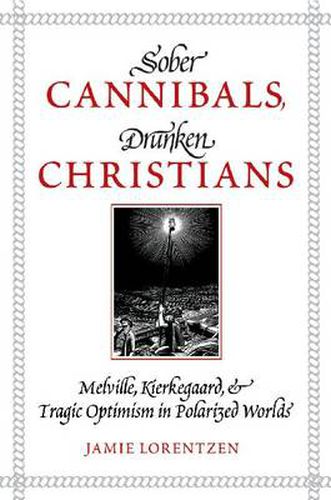Readings Newsletter
Become a Readings Member to make your shopping experience even easier.
Sign in or sign up for free!
You’re not far away from qualifying for FREE standard shipping within Australia
You’ve qualified for FREE standard shipping within Australia
The cart is loading…






Despite that they didn’t know each other, the writing styles of American writer Herman Melville (1819-1891) and Danish writer Soren Kierkegaard (1813-1855) complement each other, especially their humour, irony, penchants for paradox, and passions for imagery and poetics. In addition, their works similarly address issues of the world and time. Aesthetic, ethical, social, philosophical, and theological paths on which they walk reveal similar footprints. World historical circumstances to which they were responding in their time and to which they continue to respond in our time are not dissimilar. Melville and Kierkegaard’s rebounding echoes reverberate in our highly charged and polarized times, speaking especially to the timeless conundrum of what Kierkegaard calls the disastrous confounding of politics and religion and what Melville calls drunken Christianity, namely, the intoxicated mixing of worldly issues with otherworldly issues without care paid to maintaining necessary ethical distinctions. These two writers are like two prophets crying from New York and Copenhagen street corners about our own cultural wildernesses. They are truth-tellers and authors who ought to be read and studied because they have something urgent to say about our shifty human condition and our polarised world.
$9.00 standard shipping within Australia
FREE standard shipping within Australia for orders over $100.00
Express & International shipping calculated at checkout
Despite that they didn’t know each other, the writing styles of American writer Herman Melville (1819-1891) and Danish writer Soren Kierkegaard (1813-1855) complement each other, especially their humour, irony, penchants for paradox, and passions for imagery and poetics. In addition, their works similarly address issues of the world and time. Aesthetic, ethical, social, philosophical, and theological paths on which they walk reveal similar footprints. World historical circumstances to which they were responding in their time and to which they continue to respond in our time are not dissimilar. Melville and Kierkegaard’s rebounding echoes reverberate in our highly charged and polarized times, speaking especially to the timeless conundrum of what Kierkegaard calls the disastrous confounding of politics and religion and what Melville calls drunken Christianity, namely, the intoxicated mixing of worldly issues with otherworldly issues without care paid to maintaining necessary ethical distinctions. These two writers are like two prophets crying from New York and Copenhagen street corners about our own cultural wildernesses. They are truth-tellers and authors who ought to be read and studied because they have something urgent to say about our shifty human condition and our polarised world.